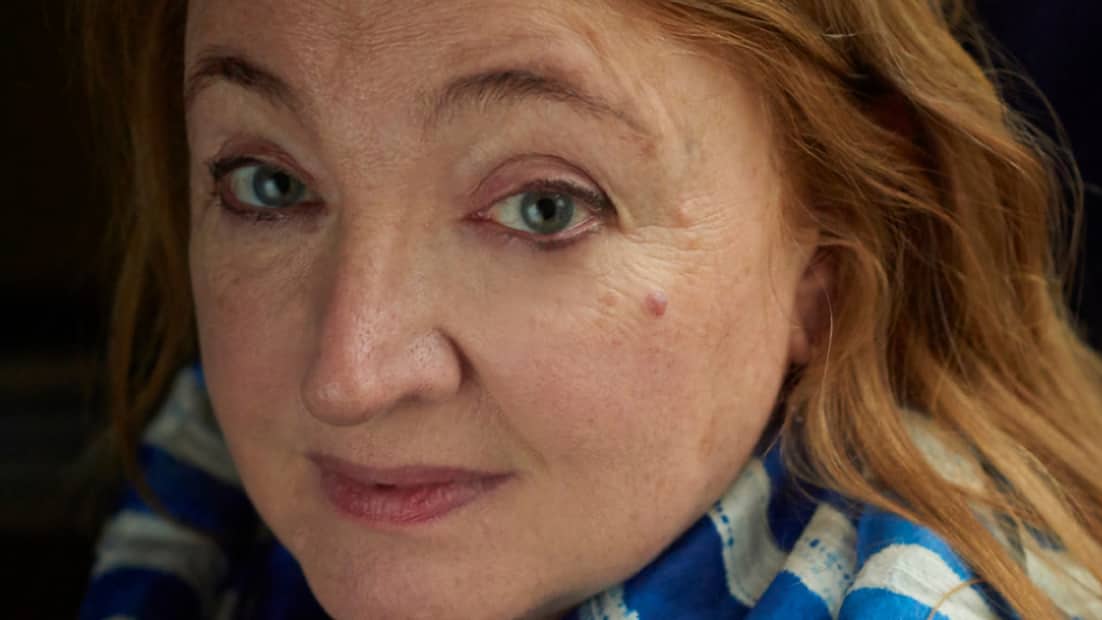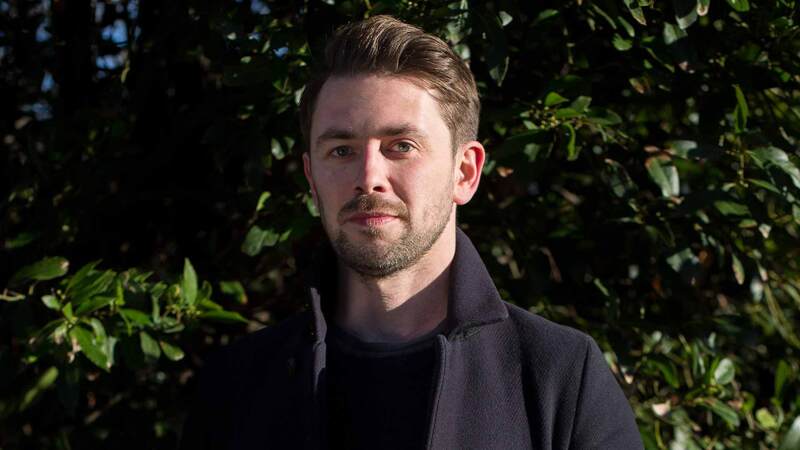You are viewing your 1 free article this month. Login to read more articles.
Amanda Craig | 'I had one of the worst débuts you could possibly think of'
With nine novels under her belt, Amanda Craig’s latest work features Hannah, her most autobiographical character to date
Hannah, the protagonist of Amanda Craig’s The Golden Rule, is a young single mother with a cruel, abusive ex-husband. A university graduate, she has left her job in advertising because of rampant sexual harassment, and is living a life of grinding, miserable poverty in London, working as a cleaner to the oblivious well-off to make ends meet.
Hannah is also, says Craig, the most autobiographical character she has ever written. After Craig graduated from Cambridge, she, like Hannah, worked in advertising, “which I instantly hated, for all the reasons that she hates it—the relentless sexual harassment, which was completely taken for granted in offices in those days”, the author says, speaking from her second home in Devon, to which she has decamped for the duration of the pandemic (she is an acute asthmatic).
One of the things that I love about Victorian literary fiction is they had it all in there—it is both literature and horribly dramatic
“It was the start of the 1980s, so we were also in the middle of a recession. I had absolutely no money, no safety net there, nothing. And I almost had a kind of breakdown, so many things went very badly wrong.”
Craig quit and worked as a cleaner for 18 months, and while she was not in quite such dire straits as Hannah, she “was definitely poor enough to choose between eating and heating, and was extremely depressed”. Like Hannah, she had “that feeling that I just didn’t know where I was going to turn, you know? What I was going to do.”
Their stories then diverge rather dramatically. Craig is married with two children; in The Golden Rule, which is a gloriously immersive and thrillingly gothic contemporary blend of Patricia Highsmith’s Strangers on a Train and the Beauty and the Beast fairytale, Hannah meets the glamorous Jinni on a train to Cornwall, and the two women agree to murder their abusive husbands.
“That very much came out of this experience of having a number of very close girlfriends who had hit 50 and suddenly found their husbands had been unfaithful, and were going through the nightmare of divorce,” says Craig. “I got very used to going out to lunch with these poor, lovely weeping friends who had done nothing to deserve this, and them saying one after another how much easier it would be to be a widow. When one of them said this, I was so angry I said: ‘Go ahead, kill him!’”
Craig also knew how easy it would be to hire a contract killer, she says with a grin. When Craig had her “notorious problems with David Sexton” over A Vicious Circle—more on which later—she was offered one by her builder, who was furious on her behalf. “‘If you want him offed, Amanda, just say the word, I know someone who’ll do it,’ and I was interested enough for about 30 seconds to ask how much would it cost, and it was actually incredibly cheap—£1,500. Anyway, I thought no, if I do this, apart from it being a mortal crime, I’ll never be able to enjoy another detective novel again. So I said, ‘No, thank you very much, but no thanks.’”
It came to her “in a flash” that gender-flipping Highsmith could work. “The Highsmith is really horrible— incredibly misogynistic, but I do love her blackness,” she says. All of the awful acts of cruelty and abuse she describes in the novel are based on real life. “There is this idea that somehow if you bring violence and drama into a work of fiction, then it can only be genre [as opposed to literary fiction], and I don’t see why that should be at all,” she says. “One of the things that I love about Victorian literary fiction is they had it all in there—it is both literature and horribly dramatic.”
Craig always knew she wanted to be a novelist (apart from a brief desire at 13 to be a doctor, but she was “no good at maths”). She landed a job as a junior features writer for the Sunday Express, after her stint as a cleaner; it was “unspeakably dreadful”, but when she was given a commission to spend nine months following Jeffrey Archer for a feature about his first play, she bunked off and wrote her first novel. “The play was so unutterably terrible that I decided I was just going to shamelessly lie that I was following Jeffrey, and go home and write my book.”
Fortunately for Craig, the piece was dropped after the story about Archer and a sex worker broke, and she landed a book deal with the late Robyn Sisman at Hutchinson for Foreign Bodies, about an 18-year-old who moves to Tuscany longing to be an artist. “But I had one of the worst débuts you could possibly think of,” she says. An “absolutely appalling” review in the Sunday Times “torpedoed me in a way that was very difficult to get over”.
It took “a lot of resolve” to overcome, but she went on writing, and the experience was “probably one of the reasons” she wrote her third novel, the controversial satire of literary London, A Vicious Circle. Sexton, then a reviewer for the Sunday Telegraph and a long-ago ex of Craig’s, believed one of the less pleasant characters was based on him, and threatened to sue. “About the only wear Italian clothing,” said Craig at the time, but the novel was dropped by Hamish Hamilton and rewritten by Craig before eventually being published by Fourth Estate.
Craig is often described as a “state of the nation” novelist, a label she rather blanches at, but she “likes it in the sense that it encourages people to read me more seriously”. And while The Golden Rule is both thrilling and romantic, and a wonderfully cathartic look at a woman (and a house) becoming who they should be, it is also a razor-sharp take on post-Brexit Britain and its devastating effect on Cornwall, with returning Londoner Hannah at odds with her Leave-voting family.
“There is this problem, which is not just unique to Cornwall or indeed Britain, which is people living in beautiful coastal places who are absolutely on their knees with poverty,” says Craig. “It really is awful and I’m not sure anybody knows what the solution to it is, but it’s the kind of situation that really interests me as a novelist—that tension between the country and the city, and the rich and the poor. I could see right from the start how this novel that starts off as a drama between two women could be expanded to something that was bigger, and was so-called ‘state of the nation’.”
Shortlist shortfall
With nine novels under her belt today, and a longlisting for the Women’s Prize for her seventh, Hearts and Minds, her current situation is “nice in some ways but difficult in others—I’ve never been shortlisted for a single prize, which is hard in all sorts of ways. It’s definitely affected me financially because you don’t get the foreign sales without the prizes,” she say.
From lambasting the organisers of the Booker over their decision to admit Americans, to fighting for the right for authors to be paid when they appear at literary festivals, Craig is, she admits, “stuffed with opinions”, and she speaks eloquently today on the topic of overlooked women novelists, citing names from the lateHelen Dunmore to Linda Grant, Michelle Paver, Jane Thynne and Bernardine Evaristo, whom “I was reading for years before she went nuclear: extraordinary writer, totally overlooked”.
Her generation of women novelists, she feels, was “very much overshadowed” by the Amis and Barnes generation. A Granta list in the 1990s was almost all men, and “it’s almost as if consciousness leapt from the Amis Barnes generation to the Zadie Smith one, and there were almost 15 years in between,” she says. “What about the vast numbers of very good middle-aged women who really are almost invisible?”










